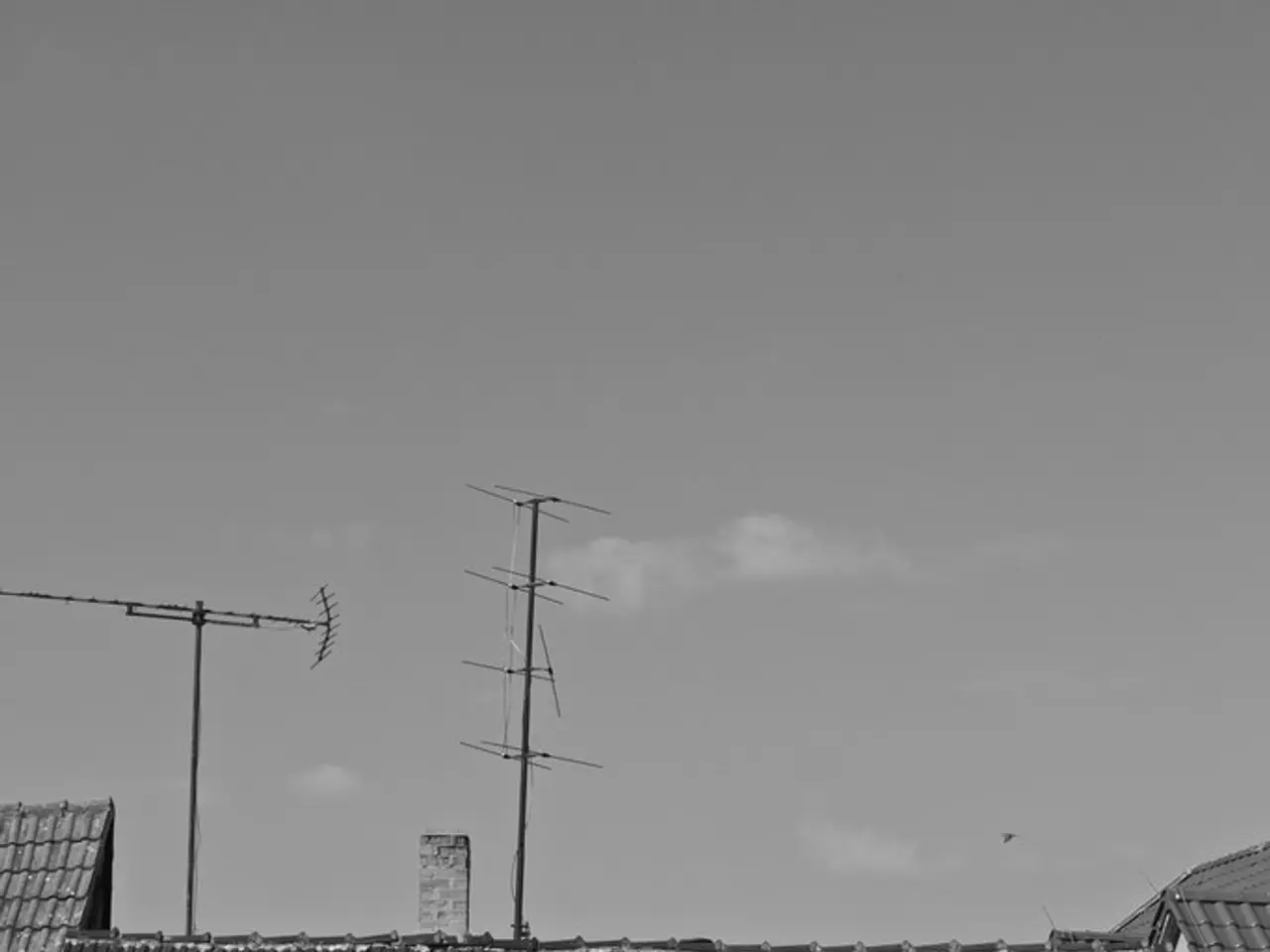Scorching Summer Weekend Awaits Germany
Sizzling summer ahead: Germany forecast to reach highs of up to 37 degrees
Germany is gearing up for a steamy weekend as temperatures are forecasted to hit a high of 37 degrees Celsius in the southwest, according to the German Weather Service (DWD). Here's a breakdown of what to expect:
- Expect highs of 26 degrees in Vorpommern and 33 degrees along the Rhine on Saturday, with cooler temperatures by the coast. Be prepared for isolated, powerful thunderstorms in the Black Forest and the Allgäu on Saturday evening.
- On Sunday, the DWD predicts temperatures between 31 and 35 degrees, potentially reaching 37 degrees in the southwest. coastal regions will be cooler, with highs around 28 degrees. The day will begin sunny, but by evening, the western and northwestern regions will see heavy showers and thunderstorms.
- Predicted weather conditions for Monday suggest partly cloudy skies, with heavy showers and thunderstorms possible from the Neiße in the east to the High Rhine and the Alps. The north and northwest will have scattered showers and thunderstorms. High temperatures on Monday are anticipated to be between 20 and 26 degrees in the northwest and 25 to 30 degrees elsewhere.
Although temperatures may peak at 37 degrees this weekend, they won't break any records. A record-breaking high of 41.2 degrees was reached in Duisburg-Baerl and Tönisvorst (both in North Rhine-Westphalia) in July 2019 and remains unsurpassed.
As we enter summer on the astronomical summer solstice on Saturday, the sun will reach its highest point in the sky at midday. This event occurs when the Earth's axis is tilted towards the sun, causing the North Pole to be bathed in sunlight for the longest day of the year. The summer solstice coincides with the longest day and shortest night of the year, but from Sunday onwards, the days will start to shorten.
Traditional celebrations for the summer solstice, known as Midsummer, are closely connected to ancient pagan customs across Scandinavia and the Baltic countries. These celebrations traditionally revolve around themes of light, nature, fertility, and community.
In Sweden, Midsummer (Midsommar) is one of the most important holidays, second only to Christmas. Celebrations usually involve dancing around a maypole decked with flowers and greenery, singing traditional folk songs, and partaking in classic foods like pickled herring, new potatoes with dill, sour cream, chives, and fresh strawberries. Many Swedes make a pilgrimage to the countryside for these festivities, leaving the city streets fairly empty. The Swedish Midsummer celebrations have associations with joy, nature, and the arrival of summer, tracing back to ancient pagan rituals that celebrated light and fertility.
In Denmark, Sankt Hans Aften is observed on Midsummer's Eve. Danes light bonfires, sometimes with a witch effigy atop, to ward off evil spirits and visit water wells and lakes, a practice with Viking origins for protection against evil. The festivities include singing traditional songs and reflect a blend of pagan beliefs with later Christian influences, such as the association with St. John’s Eve.
Finnish Midsummer, known as Juhannus, honors the pagan god Ukko and includes lighting bonfires to drive off evil spirits, dancing, singing, and various practices believed to bring good fortune, such as flower collecting. Finns also believed bathing in natural springs or lakes during this magical time boosted health.
In Latvia, the summer solstice festival, Jāņi, is celebrated with bonfires, singing and dancing around fires, feasting on traditional foods like bacon pie, and eating sweet beer. The celebrations in Latvia are centered around nature, fertility, and protection from evil spirits and share a strong connection with ancient pagan solstice rites.
Similar midsummer traditions are observed in Estonia and Lithuania, with slight regional variations. Overall, Scandinavian and Baltic summer solstice celebrations share common elements such as dancing around decorated poles or bonfires, wearing flower crowns, singing folk music, indulging in seasonal foods, and performing rituals believed to bring good luck, fertility, and protection against evil. These customs hark back to ancient pagan solstice rites that honor nature and the power of the sun at its peak, with later Christian elements sometimes incorporated.
- The German Weather Service (DWD) forecasts a scorching weekend with temperatures potentially reaching 37 degrees Celsius, despite not breaking any record-breaking highs from previous years.
- During the anticipated steamy weekend, residents in the Black Forest and the Allgäu must prepare for isolated, powerful thunderstorms on Saturday evening, following weather-forecasting predictions.






